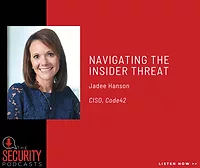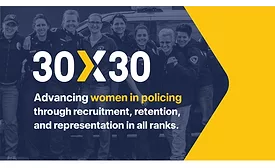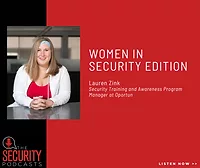Home » Women in Security
Articles Tagged with ''Women in Security''
Women in Security 2021 Edition
5 minutes with Kimber Goerres - Establishing technical security requirements
August 6, 2021
A glimpse of women in the security sector today
A new generation of young professionals are joining the industry who may not have considered security as a career path previously thanks to others that have paved the way through their dedication and successes.
July 8, 2021
Sign-up to receive top management & result-driven techniques in the industry.
Join over 20,000+ industry leaders who receive our premium content.
SIGN UP TODAY!Copyright ©2025. All Rights Reserved BNP Media.
Design, CMS, Hosting & Web Development :: ePublishing










